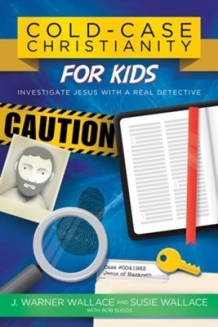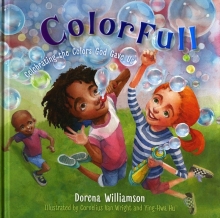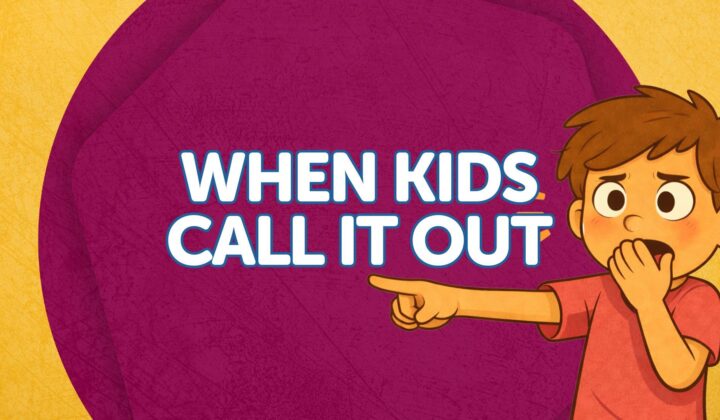Learn more about the journey that led to us equipping kids to carefully evaluate every idea they encounter.
Meet members of our team who have contributed to curriculum development.
Hear from real users of the Foundation Curriculum.
Learn what we believe about God, Jesus, Scripture, and more.
February 2022 Book Club Recommendations
Our goal in the Foundation Worldview Book Club is to provide resources for you to have meaningful, literature-based worldview discussions with the children God has placed in your care. We work hard to choose books with insightful, truth-based themes. However, we know that our subscribers will have different convictions about the content they allow in their homes, churches, and classrooms. We encourage you to read the recommended books ahead of time, to ensure that the content fits within the framework you have already established in your ministry context. Please also note that by recommending a certain book, Foundation Worldview is not endorsing every work published by a particular author.
Book for Adults

Cold-Case Christianity
J. Warner Wallace
Cold-case homocide detective J. Warner Wallace was an avowed atheist, until he used his investigating skills to evaluate the gospels. Rather than finding a compilation of myths, Detective Wallace realized he was reading eye-witness testimony. This book is an easy read that will help you understand the reliability of the gospels on a deeper level.
Book for Children Ages 8-12

Cold-Case Christianity for Kids
J. Warner Wallace, Susie Wallace, Rob Suggs
Join Detective Jeffries as he trains a bunch of junior detectives. As you learn real detective skills, you will put them into practice as you investigate the claims of the Christian worldview.
Question 1 (Before You Read the Book) - Do you believe that Christianity is true? What evidence do you have for this belief?
Discussion Guide - This is a great question to guage where your child is in understanding the truth of the Christian worldview. Chances are, if your child responds to this question with a yes, she probably will not have much evidence to support this belief. That is okay. Evidence for Christianity will be addressed throughout the book. If your child does not believe that Christianity is true, this is a great opportunity to find out why. Many uncertainities will be addressed in this book. However, if this book doesn’t address you child’s specific questions, it will provide a great starting point to begin searching for answers.
Question 2 - Throughout the book, Jeffries trains his cadets to think like detectives. Which two detective strategies stand out most to you and why? (Hint: It's not cheating to look back through the book.)
Discussion Guide - There is no right or wrong answer to this question (so long as your child provides actual strategies mentioned in the book). The purpose of this question is to remind your child or what he learned, thus solidifying the concepts in his mind. You can then bring up these strategies mentioned in everyday discussion to remind him, and your whole family, of both sound investigating strategies and the truth of the Christian worldview.
Question 3 - On page 31, Jeffries explains that a good detective separates what's most reasonable from all the stuff that's just possible. Let’s pretend we leeave our house one morning and it was a mess - dirty dishes and clothes everywhere. However, when we return in the evening, we find the house spotless. What are some reasonable explanations of how this happened and what are some explanations that are just possible?
Discussion Guide - Talk through several possibilities, categorizing each as a reasonable explanation or a possible explanation. Remind your child that explanations that are merely possible shouldn’t be strongly considered. Then turn to page 34 and discuss the different possible and reasonable explanations of what happened to Jesus’ body.
Question 4 (After Finishing the Book) - After reading Cold-Case Christianity for Kids, do you believe that Christianity is true? What evidence do you have for this belief?
Discussion Guide - Discuss the different lines of evidence for Christianity presented throughout the book (Jesus’s resurrection, the design in the universe, the eyewitness testimony of the disciples, the chain of custody, etc.). If your child is not convinced Christianity is true, ask her what evidence she would need to believe it was true. Then discuss whether the evidence she requires is reasonable or unreasonable.
Bonus Question - If your child has gone through Foundation Comparative Worldview Curriculum, say, ”On page 47, Jeffries says, ‘Information like this sentence always comes from intelligence.’ What evidence did we see for this claim in Unit 3 when we explored the question, ‘How did life begin?’”
Discussion Guide - Discuss the letter tile activity where we saw that information always comes from intelligence. Then discuss the example of the regular rocks on Mount Rushmore and those that were carved.
Bonus Question - If your child has gone through Foundation Careful Thinking Curriculum, say, “On page 20, Jeffries says, ‘If we're going to solve mysteries, we have to look at the facts and not assume we know the answer before we gather all the evidence.’ What skills have you learned for evaluating the evidence supporting a claim?”
Discussion Guide - Discuss making sure a claim follows its own rules, looking for careful thinking mistakes, and making sure evidence (support) comes from a trusted source.
Book for Children Ages 4-7

ColorFull: Celebrating the Colors God Gave Us
Dorena Williamson
Granny Mac helps her grandchildren and their best friend see all the amazing colors God has given us, including the color of our skin, eyes, and hair. This book helps little ones understand the beauty God has given to each of His image bearers.
Question 1 - This book talked a lot about the colors God has given us. What are some colors you see right now?
Discussion Guide - Discuss the amazing colors you find around you, both in nature and in man-made objects.
Question 2 - Some of the amazing colors God gave us are in our skin, hair, and eyes. What colors do you have in those parts of your body?
Discussion Guide - Have your child list their skin, hair, and eye color. Discuss how beautiful these colors are and how, no matter our coloring, we are all God’s image bearers. (If you have time, you can follow up by reading Genesis 1:27.)
Question 3 - Why is being colorfull better than being colorblind?
Discussion Guide - Discuss how colorblindness is ignoring the beauty God has given us in colors. We want to recognize and celebrate that beauty. So, rather than being colorblind, we want to be colorfull!
Bonus Question - If your child has gone through the Foundation Early Childhood Series, say, “Granny Mac says that the colors God gave for our skin, our hair, and our eyes are beautiful! Is that a truth or a feeling?”
Discussion Guide - Discuss how beauty comes from God. The fact that something or someone is beautiful is a truth outside of our feelings. Even if a person doesn’t feel like something or someone is beautiful, that feeling cannot change the beauty that God places there in His good design.
Related Posts and insights

Helping Your Child Understand That Love Is a Choice, Not Just a Feeling
Is love just a feeling? Learn how to teach your child that biblical love is a choice using 1 Corinthians 13, with practical weekly tips for every age group.

How to Help Your Child Through Hard Circumstances
Learn five biblical steps to walk your child through suffering and hard circumstances—from demonstrating compassion to helping them look beyond themselves.

Teaching Kids How to Respond to Sin Biblically
Help your child respond to bad behavior they see in public without feeling superior. Learn a 3-step biblical framework for loving others without affirming sin.
